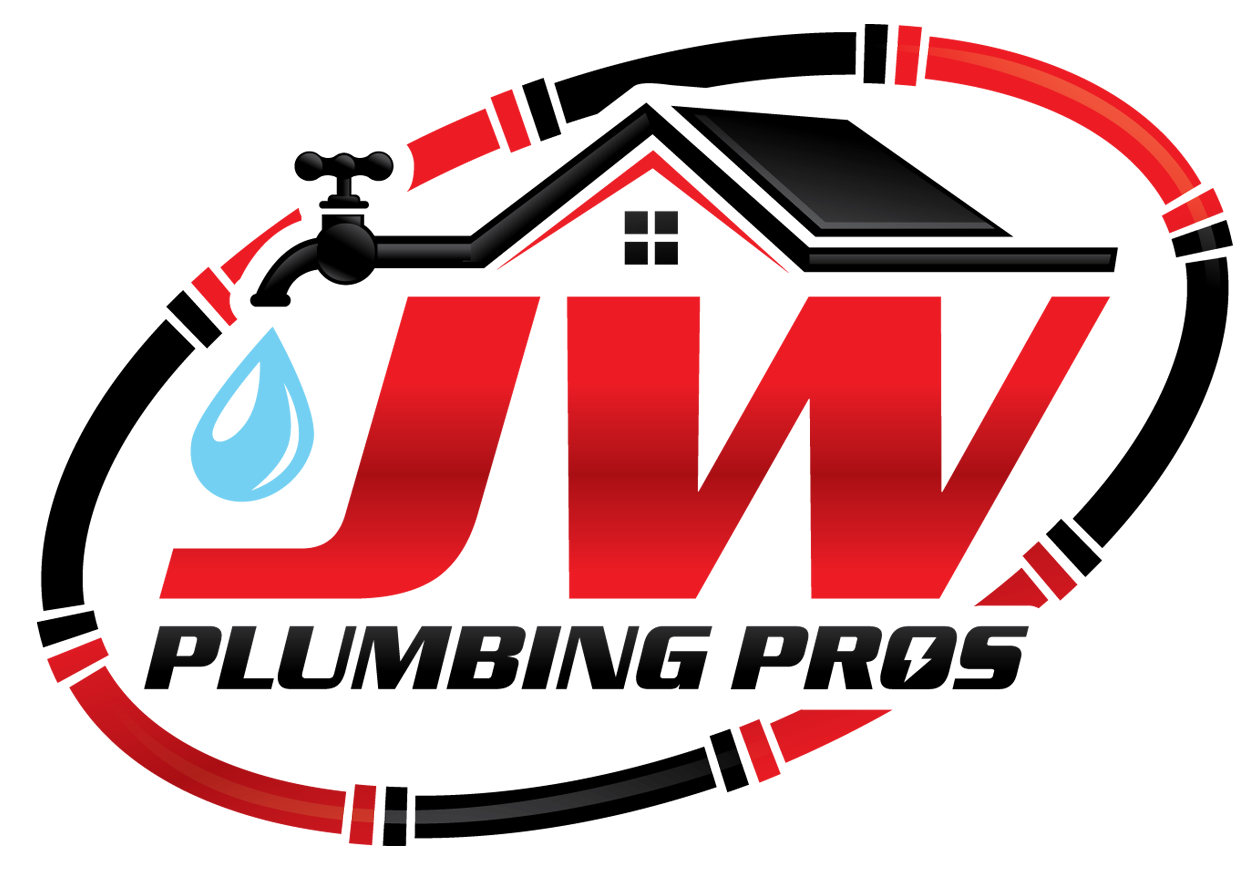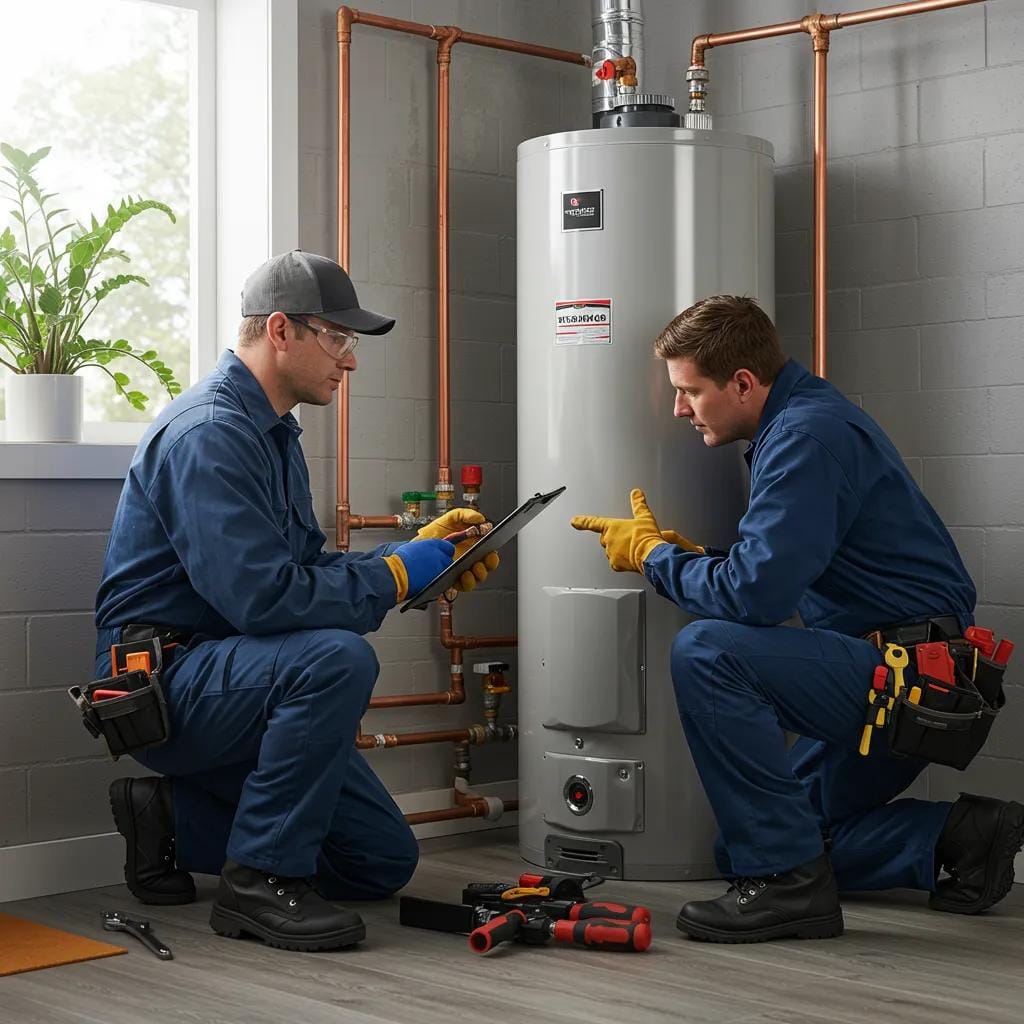When your water heater shows signs of trouble, deciding whether to replace your water heater or repair your water heater it can feel like a high-stakes dilemma—one that balances immediate costs against long-term performance and efficiency. While a simple fix might extend the life of an older unit for now, it could be merely postponing an inevitable breakdown, along with rising energy bills.
In this article, we’ll walk you through the key factors to consider—such as the age of your unit, the frequency of repairs, and potential energy savings—so you can make a confident, cost-effective decision that ensures reliable hot water for years to come.
Spotting the Signs: When Your Water Heater Needs Attention
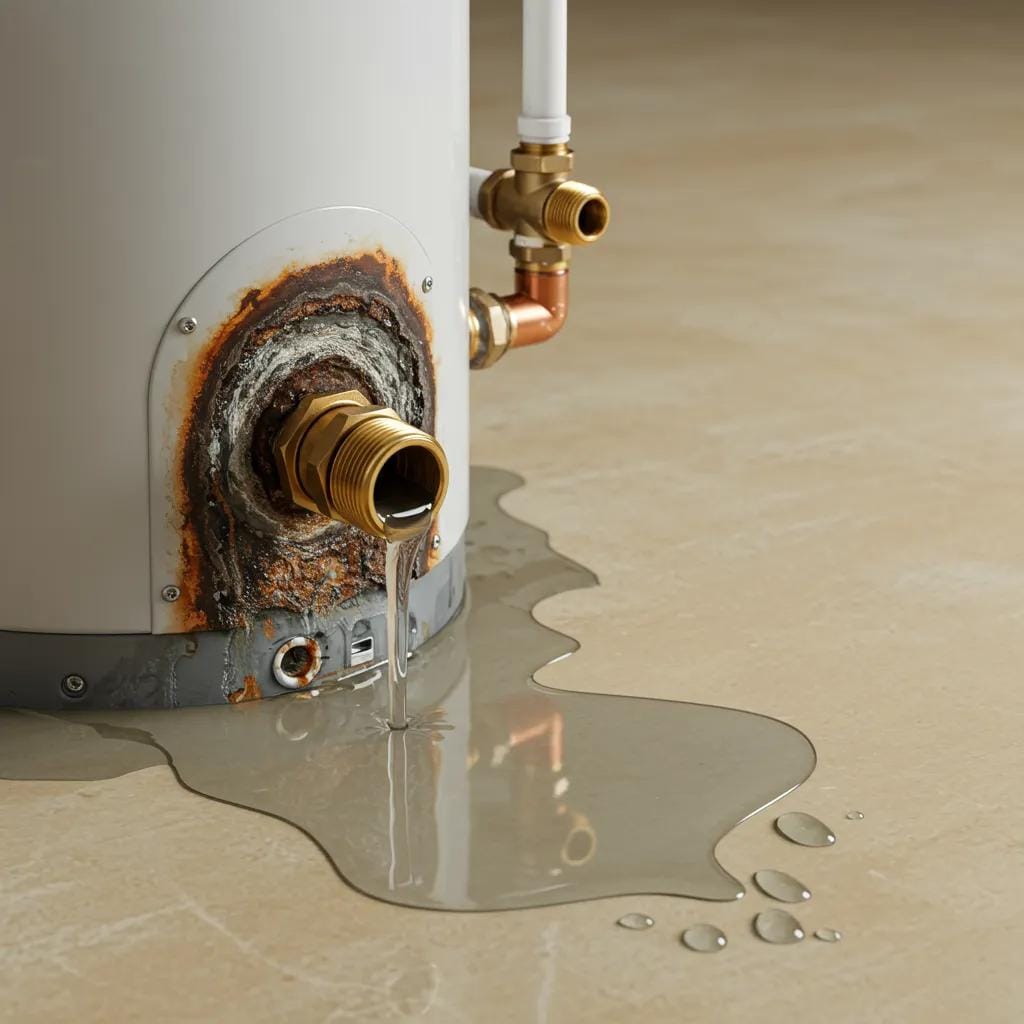
Your water heater often gives early warnings when something is off. Maybe the hot water looks rusty, the unit starts to hiss or pop, or a damp spot appears near the base. Paying attention to these signals helps you decide whether a quick repair will solve the problem or if it is time to plan for water heater replacement. Acting early protects your home from water damage and keeps energy costs in check.
What Are The Tell-Tale Signs Of Water Heater Trouble?
Cloudy or rusty hot water is a common tipoff that corrosion is developing inside the tank or the anode rod is nearing the end of its life. Noise matters, too. Popping and rumbling usually come from sediment that settles at the bottom of the tank and overheats, which forces the system to work harder. If you see moisture around the base, even a small puddle, check closely. A loose drain valve or tired gasket can mimic a leak, but steady seepage often points to a failing tank. And if there is no hot water at all, the thermostat, heating element, or burner may need attention. Noting which symptoms you see will guide the next step and prevent guesswork.
How Does Your Water Heater’s Age Influence Repair Or Replace?
Traditional tank models typically run for about 8 to 12 years, while many tankless systems can last 15 to 20 years with proper care. Age matters because older units often carry heavy sediment buildup and hidden corrosion that make small fixes less effective. Efficiency usually declines over time, which you feel in longer heat-up times and higher utility bills. Most warranties also expire as units age, so future repairs come fully out of pocket. If your system is nearing the end of its typical lifespan and has recurring issues, upgrading to a newer, efficient model can be the smarter long-term move.
When Is A Water Heater Leak A Simple Fix Or A Sign For Replacement?
Start by finding the source. A slow drip from the temperature and pressure relief valve, the drain valve, or a supply connection can often be corrected with a part replacement or a snug adjustment. Those fixes are usually straightforward if the tank is otherwise sound. Leaks from the tank body tell a different story. Rust tracks, damp insulation, or water seeping from a welded seam suggest internal corrosion. Once the tank wall is compromised, repairs are not reliable. In that case, plan for water heater replacement to avoid sudden failures and water damage. If the unit trips a safety device or shows signs of overheating along with a leak, shut it down and schedule service promptly.
Simple Steps To Reduce Future Problems
A few habits extend the life of your system. Flushing a few gallons from the drain valve once or twice a year helps clear sediment. Checking the anode rod at routine intervals slows corrosion inside the tank. Setting the thermostat to a safe, steady temperature reduces stress on components. Keeping the area around the heater clear improves airflow and makes inspections easier.
Spotting symptoms early, considering the age of the system, and tracing the source of a leak will help you choose between a targeted repair and water heater replacement. A practical plan protects your home, stabilizes energy costs, and ensures you have steady hot water when you need it.
When Is Repairing Your Water Heater the Smart Choice?
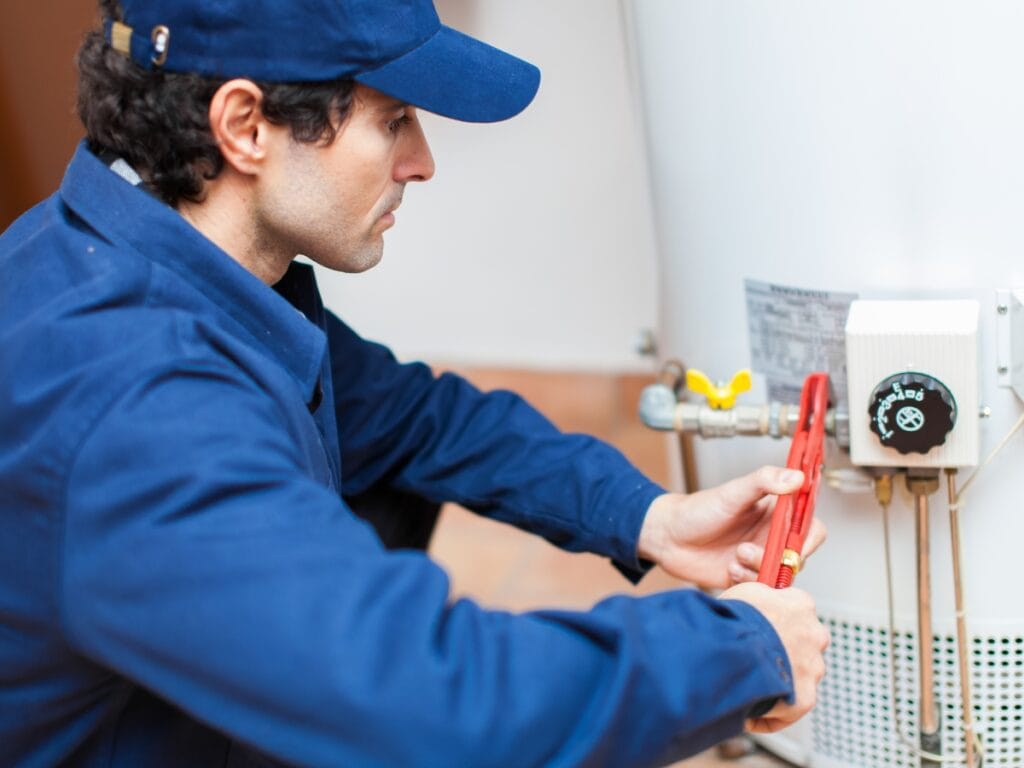
If your unit is relatively new and the problem is limited to one part or component, opting for a repair often makes more financial sense than a full water heater replacement. Isolated issues can typically be fixed quickly, especially if replacement parts are easy to find and the rest of the system is still in good shape. Addressing these smaller problems early can also extend the overall lifespan of your unit and help you get the most value out of your investment.
What Are the Most Common Water Heater Repairs?
Most water heaters rely on just a few key components, so many issues are straightforward to address. If your water is not heating properly, a thermostat malfunction is a common culprit and usually resolved by replacing the thermostat. A burned-out heating element is another frequent issue that can stop your water from reaching the right temperature, and swapping it out typically restores normal function.
Leaks coming from the pressure relief valve often mean that part needs replacing, while problems with the pilot light or burner usually require ignition system servicing. These are all fairly routine fixes that a technician can handle without replacing the entire unit, and they are often much less expensive than installing a new system.
What’s the Typical Cost for Water Heater Repairs?
Repair costs can vary depending on the specific problem, the cost of parts, and labor rates in your area. Minor repairs, such as replacing a thermostat or pressure valve, usually fall in the range of $100 to $500. More involved work, like repairing a heating element or ignition system, often costs between $400 and $1,000.
It’s worth remembering that emergency service calls and high-end replacement parts can raise the total cost. Getting an estimate before work begins gives you a clearer picture of whether repairing your unit is the best option or if water heater replacement might be more cost-effective in the long run.
Should You Tackle Water Heater Repairs Yourself or Call a Professional?
While some maintenance tasks are manageable for homeowners, many water heater repairs are best left to professionals. Flushing the tank or replacing the anode rod are examples of DIY-friendly tasks, but anything involving electrical components or gas lines carries serious safety risks and should be handled by a licensed technician.
Professional repairs offer several advantages. They ensure the work is done to code, maintain any existing warranties, and include liability coverage if something goes wrong. Experts can also spot underlying issues you might miss, preventing future breakdowns and potentially extending the life of your unit. Although hiring a pro can be more expensive upfront, it often pays off by ensuring the job is done correctly and safely.
Repairing your unit instead of opting for water heater replacement can be a smart decision if the system is relatively new and the problem is minor. By understanding common repair needs, knowing what costs to expect, and relying on professional expertise when necessary, you can make an informed decision that balances cost, safety, and long-term reliability.
When It’s Time to Consider a New Water Heater
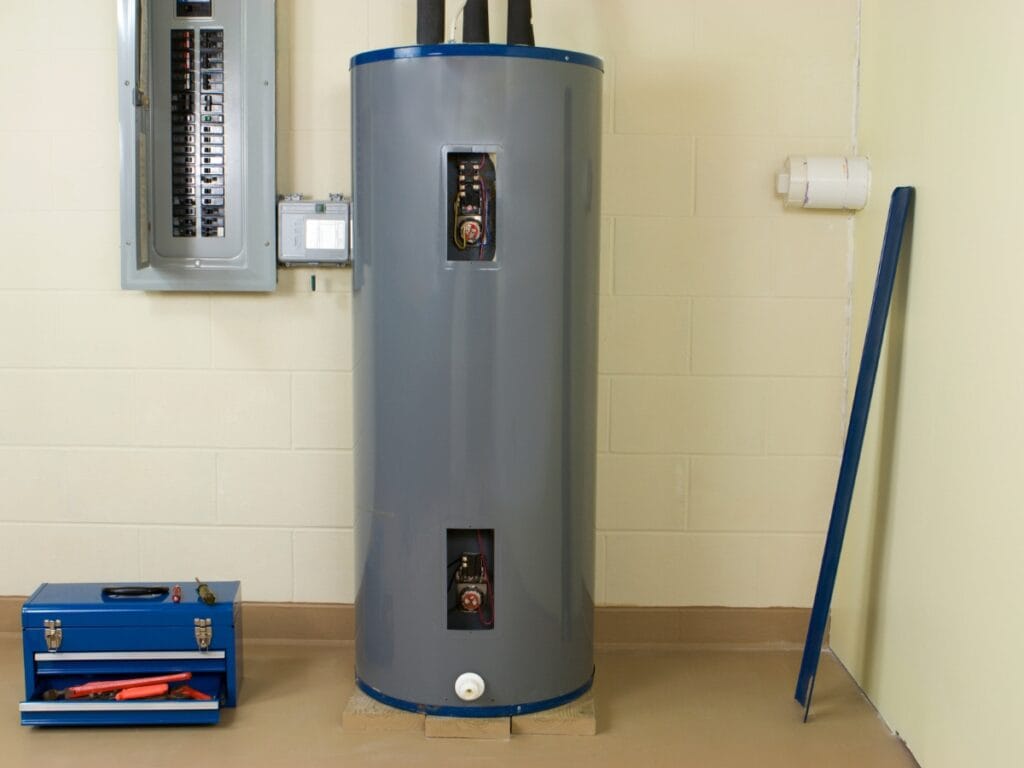
There comes a point when repairing an older unit is no longer practical, and water heater replacement becomes the smarter investment. Age, repeated breakdowns, or a significant tank failure often signal that your current system is nearing the end of its life. Upgrading to a newer model not only improves efficiency and performance but can also lower utility costs and provide a more reliable supply of hot water.
What Are the Main Reasons to Upgrade Your Water Heater?
Several key factors can indicate that it’s time to replace your water heater. Age is one of the most important. Traditional tank units typically last about 8 to 12 years, while tankless models often run efficiently for 15 to 20 years. Once a system approaches or exceeds these limits, it becomes more susceptible to leaks, corrosion, and frequent malfunctions.
Another reason to consider replacement is repeated repair needs. If you’ve had to fix multiple issues in a short period, the costs can quickly add up, and the unit may still fail to deliver consistent hot water. Rising energy bills are another red flag, as older units lose efficiency over time. Finally, major leaks or visible corrosion often mean the tank’s structure is compromised, and replacement is the only reliable solution. A new system offers improved safety, efficiency, and performance, making it a worthwhile investment.
What Types of Water Heaters Are Available for Replacement?
If you’ve decided it’s time for water heater replacement, you have several options to choose from. Conventional tank water heaters are the most common and typically last 8 to 12 years with an efficiency rating of about 60 to 70 percent. Tankless water heaters, which heat water on demand, are more efficient, often reaching 85 to 95 percent efficiency, and can last up to 20 years.
Another option is a heat pump (or hybrid) water heater. These systems use electricity to move heat from the air into the water, making them far more efficient, with a coefficient of performance (COP) between 2.0 and 3.0. Their lifespan usually falls between 10 and 15 years. Choosing the right type depends on your household’s hot water needs, budget, and energy goals.
What’s the Average Cost for Water Heater Replacement?
The cost of replacing a water heater can vary widely depending on the type of system you choose and the complexity of the installation. A standard electric tank model typically costs around $1,000, while high-efficiency tankless or heat pump systems can run up to $3,500. These prices often include the unit itself, installation, permits, and removal of the old water heater.
The final price can also be affected by the complexity of the installation. Gas and heat pump models may require additional venting or electrical upgrades, and local regulations can impact permit and inspection fees. In some cases, utility companies offer rebates or incentives for upgrading to more efficient models, which can help offset costs.
What Local Factors Impact Replacement Costs?
Several local factors can influence the overall cost of water heater replacement. Labor rates vary depending on demand in your area, and local building codes may require specific permits or inspections. Availability of certain models or incentives can also affect your total cost. Considering these elements upfront will help you plan your budget more accurately and avoid unexpected expenses.
Water heater replacement is often the most cost-effective choice once your current unit becomes inefficient, unreliable, or structurally compromised. By understanding the signs that it’s time to upgrade, the types of systems available, and the factors that influence installation costs, you can make a more informed decision. Investing in a new water heater ensures dependable hot water, better energy efficiency, and peace of mind for years to come.
How Energy Efficiency and Technology Influence Your Repair vs. Replacement Choice
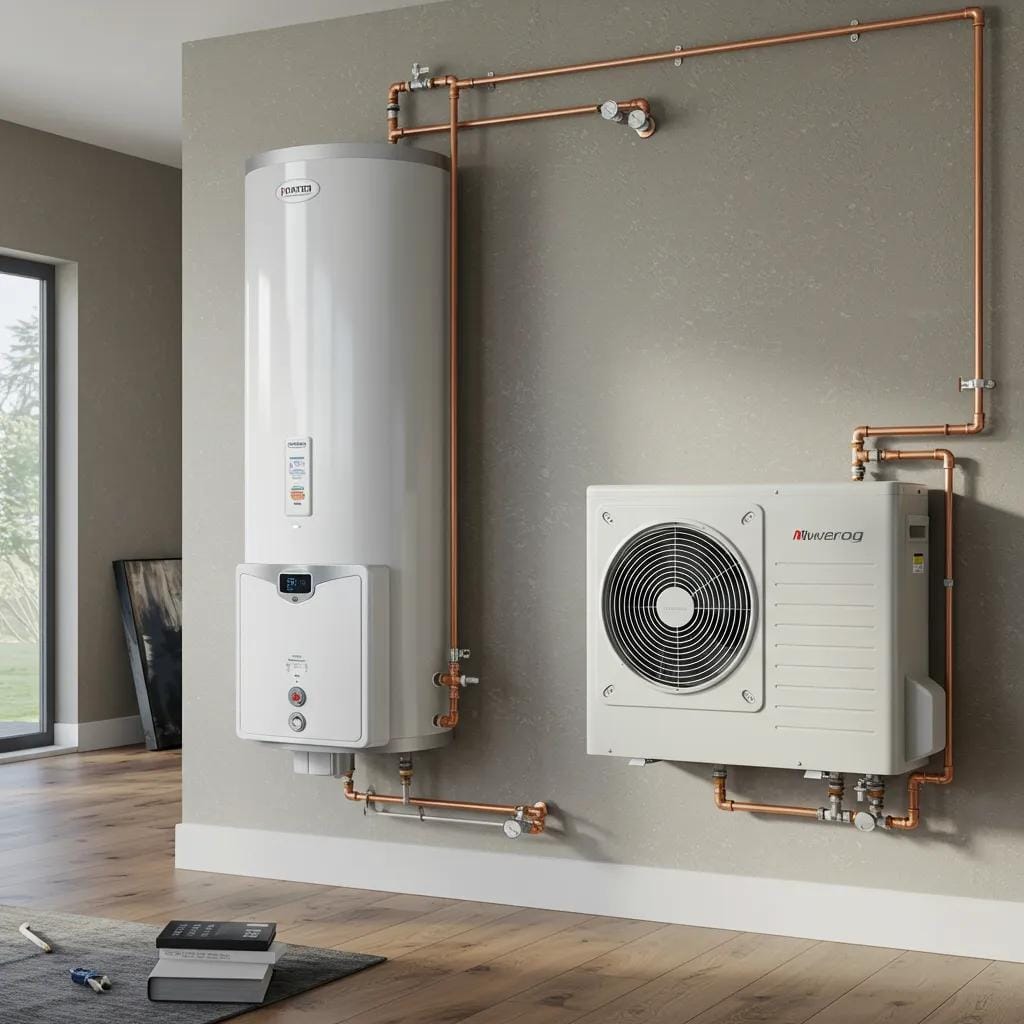
When deciding between repairing your existing unit or investing in a water heater replacement, energy efficiency and new technology should be part of the equation. Modern water heaters not only reduce energy costs but also improve performance and reliability. These advancements can tip the scales toward replacement, even if your current system is still technically functional, because the long-term savings and convenience often outweigh the upfront expense.
What Are the Energy-Saving Benefits of Tankless and Heat Pump Water Heaters?
Today’s water heaters are designed with efficiency in mind. Tankless water heaters, for example, heat water only as needed rather than keeping an entire tank hot around the clock. This on-demand system eliminates standby energy loss and can cut your energy bills by as much as 30 percent. It also provides a virtually endless supply of hot water, which is ideal for households with higher demand.
Heat pump water heaters, sometimes called hybrid models, work differently. Instead of generating heat directly, they draw warmth from the surrounding air and transfer it into the water. This process uses about 60 to 70 percent less electricity than conventional electric tank models. Many of these systems also qualify for ENERGY STAR certification, which can lead to rebates and incentives, further lowering your total cost over time. Both options significantly increase efficiency and are worth considering if your current system is nearing the end of its life.
How Do Heat Pump Water Heaters Reduce Energy Use?
Research consistently shows that heat pump water heaters deliver major energy savings compared to traditional systems. Some models achieve a system coefficient of performance (COPsys) of around 1.9, compared to just 0.95 for standard electric resistance water heaters. This means they use nearly half as much energy to heat the same amount of water. Studies also show that upgrading to a heat pump system can reduce overall annual energy consumption by up to 60 percent and lower evening peak power demand by as much as 90 percent.
These improvements not only translate into monthly savings but also support broader energy efficiency goals. By lowering demand during peak hours, heat pump systems can reduce strain on the electrical grid, which benefits both homeowners and utility providers.
Why Technology Advancements Make Replacement More Appealing
Newer water heaters often come with smart technology that adds convenience and control. Features like Wi-Fi connectivity allow you to monitor usage, adjust settings remotely, and receive maintenance alerts. Improved insulation and advanced heating elements further enhance efficiency, while more compact designs save space. These innovations make water heater replacement an opportunity to upgrade not just your unit, but your overall home energy performance.
If your current system is outdated, inefficient, or nearing the end of its lifespan, upgrading to a newer model can pay off in significant ways. Tankless and heat pump water heaters offer substantial savings on energy costs and improved performance, while modern technology brings added convenience and control. Factoring these benefits into your decision can help you choose between a simple repair and a water heater replacement that delivers long-term value.
How Does an Older Water Heater Impact Your Energy Bills?
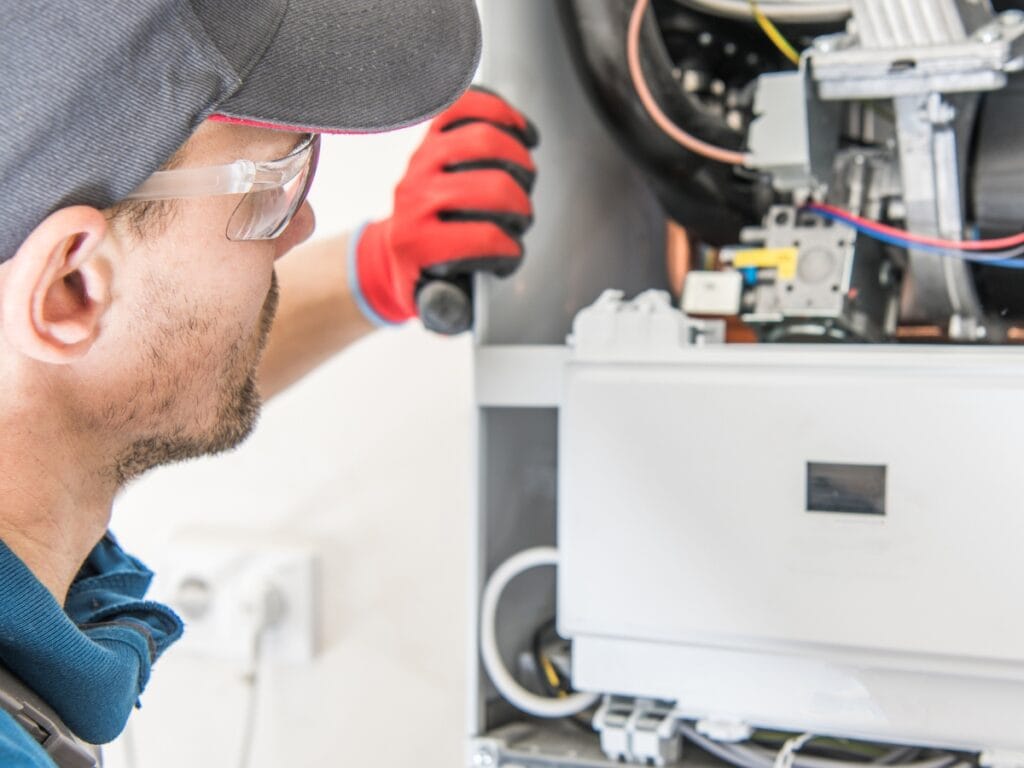
An aging water heater can quietly become one of the biggest contributors to higher utility costs in your home. As water heaters age, sediment naturally builds up at the bottom of the tank. This layer acts as insulation between the burner or heating element and the water itself, forcing the unit to work harder and stay on longer to reach the desired temperature. Over time, this inefficiency can cause monthly energy bills to climb by 10 to 25 percent compared to what you’d pay with a newer, more efficient unit.
Older models also tend to lose insulation quality, meaning more heat escapes between heating cycles. This heat loss increases how often the unit needs to run, which not only drives up costs but also accelerates wear on components. Even if your system is still producing hot water, its declining efficiency can make water heater replacement a more cost-effective choice in the long run. Upgrading to a newer model can pay for itself over time through lower energy consumption and reduced maintenance needs.
Are There Local Rebates or Incentives for Energy-Efficient Water Heater Upgrades?
Upgrading to a high-efficiency unit isn’t just about saving on monthly bills. Homeowners in many areas, including Northwest Georgia, can often take advantage of rebates and incentives designed to make water heater replacement more affordable. Utility companies frequently offer rebates of up to $300 for installing ENERGY STAR-certified water heaters, which use significantly less energy than older units. These rebates help offset the initial cost of upgrading and reward you for choosing a more efficient system.
State-level incentives can also make a big difference. Many states offer tax credits for installing qualifying heat pump water heaters, which can use 60 to 70 percent less electricity than standard electric tank models. Manufacturers sometimes run special promotions on tankless systems as well, further reducing the upfront investment. By combining these incentives with the long-term savings on your energy bills, replacing an outdated unit with a high-efficiency model becomes an even more practical and cost-effective decision.
The Long-Term Value of Upgrading
While repair might seem cheaper in the short term, sticking with an inefficient water heater can cost you far more over time in higher energy bills and frequent maintenance. Modern water heaters are designed with improved insulation, better heating technology, and advanced energy-saving features that older models simply don’t have. Choosing to upgrade is an investment that pays off month after month.
If your water heater is over a decade old, showing signs of wear, or causing rising utility costs, it’s worth evaluating whether water heater replacement is the smarter option. With the potential for rebates, tax incentives, and ongoing savings, upgrading to a new system can reduce your energy use, lower monthly bills, and improve the overall comfort and efficiency of your home.
Making the Smart Choice: Comparing Water Heater Repair and Replacement Costs
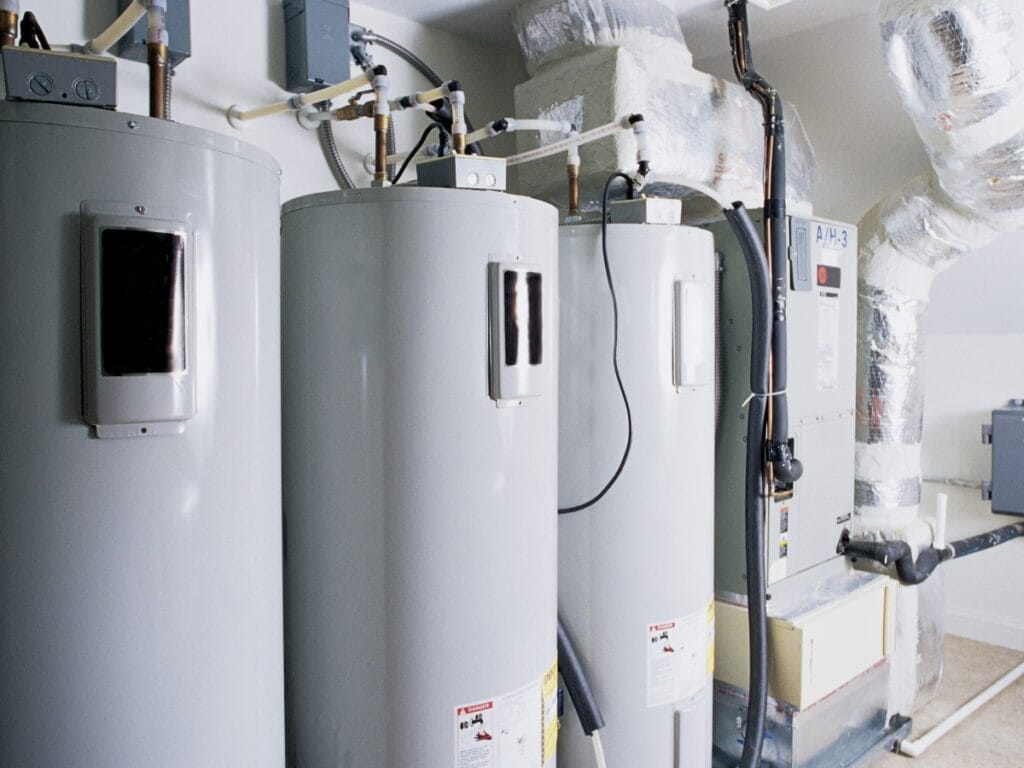
Choosing between a repair and a full water heater replacement comes down to total cost, reliability, and long-term efficiency. A quick fix can be the right call when a single part fails and the rest of the system is sound. When problems stack up or energy use keeps climbing, investing in a new, efficient unit often delivers better value over time.
What Factors Influence The Cost Of Water Heater Repairs?
Repair pricing depends on several practical details. The specific part matters, since some thermostats, elements, valves, or igniters are easy to source while others take time to order. Labor can vary based on the effort required to diagnose the issue, access the component, and reassemble the unit. Timing also plays a role, as after-hours or emergency visits increase the bill. Finally, warranty coverage can offset costs if the failed part or tank is still protected. Looking at these items together helps you decide whether a targeted repair is still the most economical choice.
What Are The Main Cost Components Of Replacing A Water Heater?
An installation quote typically covers the new unit, labor to set it up, and any permits or inspections required by local code. If venting, gas lines, or electrical service need upgrades, those add to the total. Hauling away and disposing of the old heater is usually included but should be listed so you can compare bids fairly. A clear, line-item estimate lets you weigh the upfront price of water heater replacement against the likely savings and fewer service calls in the years ahead.
How Can You Calculate Long-Term Savings When Choosing Between Repair And Replacement?
Start with the immediate cost for either option. Then factor in expected annual energy use, which can drop sharply with high-efficiency models like heat pump or condensing units. Add routine maintenance over the life of the equipment and subtract any rebates or tax credits you can claim. The result is your total cost of ownership. Many households see payback on efficient upgrades within 2 to 5 years, after which the lower utility bills are ongoing savings. Industry analyses show that higher-efficiency designs often reduce life cycle cost for typical homes, especially for larger tanks, which supports choosing an upgrade when an older unit is failing.
What Role Does Warranty Coverage Play In Cost Decisions?
Warranties shift financial risk. Standard manufacturer coverage, commonly 5 to 10 years depending on the model, may reduce or eliminate the cost of certain failures. Some homeowners add extended protection to cap future expenses, though that needs to be weighed against the age and condition of the current heater. If your unit is out of warranty and has recurring issues, the risk of repeated repair bills increases. In that case, moving to water heater replacement can be the more predictable and budget-friendly path.
Repairs make sense for newer systems with isolated faults. Replacement is usually smarter for aging, inefficient, or repeatedly failing units. By comparing repair costs, installation components, energy savings, and warranty coverage, you can choose the option that protects your budget now and over the long term.
Keeping Your Water Heater Running Strong: Maintenance Tips
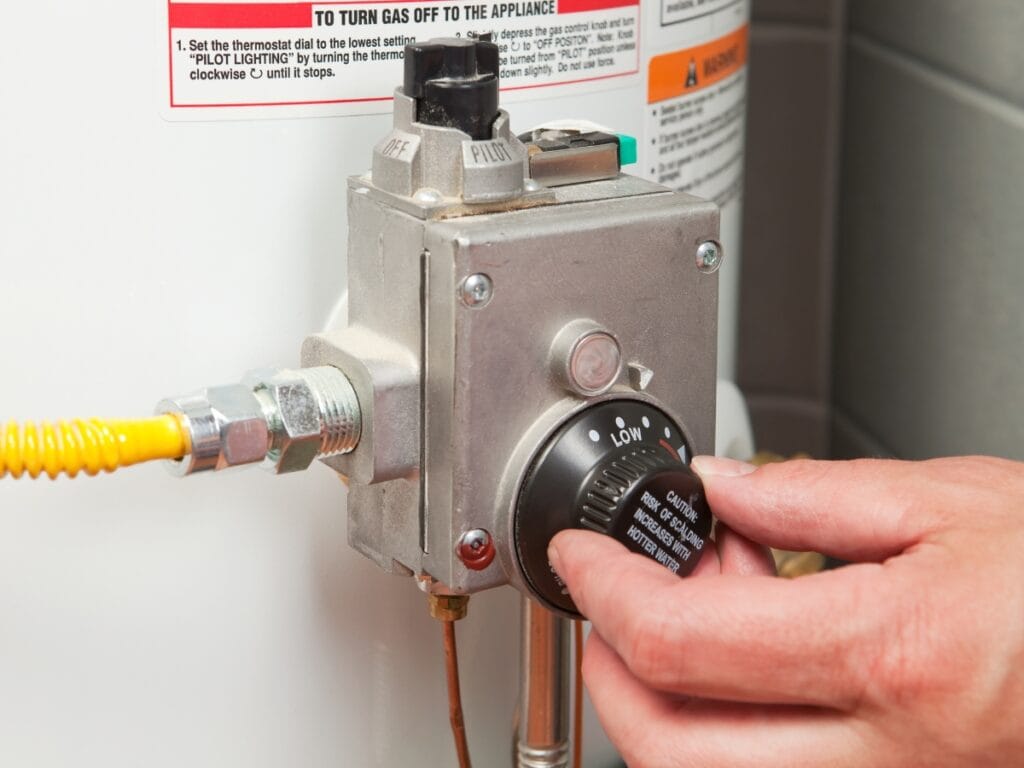
Consistent maintenance is one of the best ways to extend the life of your unit and delay the need for water heater replacement. Simple routine tasks can help prevent common issues like sediment buildup, corrosion, and failing components, all of which reduce efficiency and shorten the system’s lifespan. With regular care, your water heater will not only perform better but also cost less to operate over time.
How Often Should You Flush Sediment From Your Water Heater?
Over time, minerals from your water supply settle at the bottom of the tank and form sediment. This buildup acts as a barrier between the water and the heating element or burner, forcing the system to work harder to reach the desired temperature. The added strain reduces efficiency, increases energy use, and can eventually damage the tank or heating components.
Flushing the tank once a year is one of the simplest and most effective ways to prevent this. By draining out the water and sediment, you help maintain consistent heat transfer and reduce the risk of overheating. Homes with hard water may benefit from flushing more frequently, as higher mineral content accelerates buildup.
Why Is Checking the Anode Rod Crucial for Water Heater Longevity?
Another key maintenance task is inspecting the anode rod. This component is designed to corrode in place of your tank, protecting the steel walls from rust and extending the unit’s life. Over time, the anode rod becomes depleted and stops offering protection, leaving the tank vulnerable to corrosion and leaks.
Checking the anode rod every 2 to 3 years and replacing it when necessary is a small investment that can prevent major damage. A neglected rod often leads to premature tank failure, making early water heater replacement necessary. Staying on top of this simple task can add several years to your system’s lifespan.
How Can Regular Thermostat and Valve Checks Prevent Major Issues?
Two other components worth monitoring are the thermostat and the temperature-pressure relief valve. A properly calibrated thermostat ensures the water is heated to the correct temperature without overworking the system. Overheating not only wastes energy but also stresses internal components, which can lead to breakdowns.
The temperature-pressure relief valve is a critical safety feature that releases excess pressure from the tank. If it becomes stuck or malfunctions, pressure can build to dangerous levels. Testing it regularly ensures it operates correctly and prevents costly damage or safety hazards.
Basic maintenance tasks like flushing sediment, replacing the anode rod, and checking the thermostat and relief valve can significantly extend the life of your system and delay the need for water heater replacement. They also keep your unit running efficiently, which lowers utility bills and reduces the risk of unexpected breakdowns. By investing a little time into routine care each year, you can ensure your water heater continues to deliver reliable performance for many years to come.
Why JW Plumbing Pros Is a Trusted Choice for Water Heater Service in Northwest Georgia
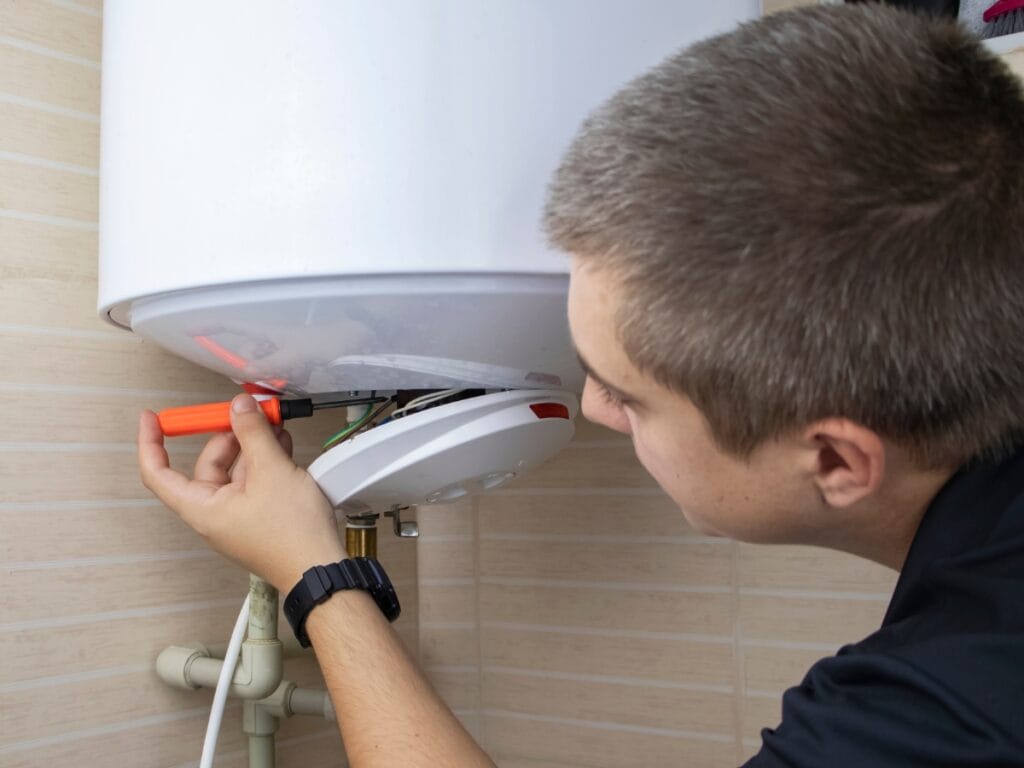
When deciding between a repair and a full water heater replacement, the company you choose to work with is just as important as the system you install. Experience, quick response times, and local knowledge can make the difference between a smooth, stress-free process and repeated headaches. That’s where JW Plumbing Pros stands out. With a team that understands the specific needs of homes in Northwest Georgia, they provide reliable solutions that help homeowners make informed decisions about their water heating systems.
What Makes JW Plumbing Pros a Trusted Local Water Heater Expert?
Expertise matters when it comes to water heater service, and JW Plumbing Pros brings years of hands-on experience to every job. Their technicians are trained and certified to work with leading water heater brands, which ensures every repair or installation is done correctly and in compliance with local codes. This attention to detail means homeowners can expect safe, efficient systems that perform reliably for years.
Beyond technical skill, their local knowledge is a key advantage. Northwest Georgia homes often face specific water quality and temperature considerations that affect system performance. JW Plumbing Pros understands these regional factors and tailors their approach to ensure each water heater operates at peak efficiency.
How Does JW Plumbing Pros Handle Emergency Water Heater Services?
Few home issues are as disruptive as losing hot water unexpectedly. That’s why JW Plumbing Pros offers rapid-response service designed to restore comfort quickly. With same-day dispatch and fully stocked vehicles, their team can address leaks, failed components, or full system breakdowns without unnecessary delays.
Whether it’s repairing a failing part or completing a water heater replacement on short notice, the focus is always on minimizing disruption to your home. Their ability to respond quickly and complete the job efficiently helps homeowners avoid extended downtime and reduces the risk of additional damage.
How Do You Decide Between Repair and Replacement?
One of the most important decisions homeowners face is whether to repair their existing water heater or replace it entirely. This choice depends on several factors, including the age of the unit, the frequency of past repairs, and overall efficiency. Older systems, especially those over a decade old, often lose efficiency and may require frequent service. In many cases, upgrading to a newer, high-efficiency model provides long-term savings on energy bills and improves overall performance.
Even if your current system is still functioning, ongoing maintenance and professional inspections can extend its lifespan and prevent costly breakdowns. Working with a trusted local team ensures you receive honest guidance on whether repair or replacement is the more cost-effective choice.
Deciding between water heater repair and replacement depends on your unit’s age, repair costs, and your household’s long-term efficiency needs. At JW Plumbing Pros, our licensed technicians and water heater repair services provide honest assessments and high-quality solutions—whether that’s a timely repair or a modern, energy-efficient replacement. Make the right choice for your home and budget: Call 770-635-5159 or request your free quote online today. We’re here to help you restore your hot water with confidence and ease.
